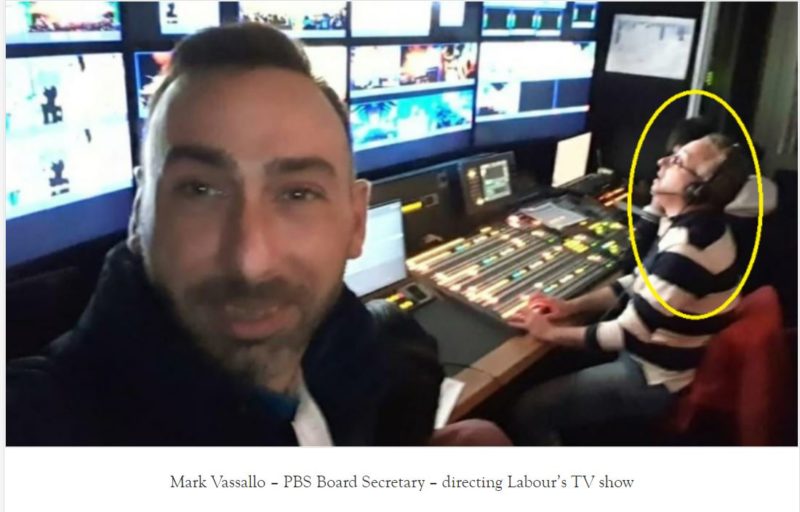State broadcaster PBS refuses to give details on the process adopted to hire full time staff without a proper call, rejecting a Freedom of Information (FOI) request by The Shift based on information that at least 18 employees were recruited by bypassing rules set to ensure transparency in the use of public funds.
The public broadcaster seems to have made it a habit to bypass procurement processes that dictate that government entities cannot recruit full time employees without a public call followed by a due examination process, which may consist of an interview.
This is intended to offer competition whenever there is a vacancy, giving equal opportunity to all those qualified for a job.
The State broadcaster has been recruiting staff on a definite term contract, even for positions that do not require specific experience and could be filled by a wider range of applicants, in a process that lacks transparency.
All this has been endorsed by the government-appointed PBS board of directors. Most of these employees come recommended from government ministries or directly from the Labour Party TV headquarters.
The Shift is informed that out of the 104 full time employees currently on the PBS’ books, at least 18 are employed through a definite contract without a proper recruitment process according to law.
Bending the law
An FOI request filed by The Shift to obtain a copy of the contracts of the 18 employees who are on a definite contract was turned down by PBS. It said “contracts pertaining to officers below scale 5 are exempted as per Article 5 of the FOI Act.”
Yet Article 5 of the FOI Act cited by PBS does not include any provision referred to by the State broadcaster to refuse the request. Further, legal sources consulted by the Shift note that even if PBS is trying to base its refusal on data protection-related principles, adopting a sweeping “no disclosure below a certain grade” rule is not compliant with the FOI Act.
The Shift has filed a complaint with the Information and Data Protection Commissioner, demanding a revision of the broadcaster’s decision and full accountability and transparency.
While under normal circumstances, government entities use direct orders to hire expertise on short term definite contracts, PBS is adopting this system to recruit lower-grade staff, bypass laws and put on its books individuals recommended by those in power.
Meanwhile, it is as yet unclear whether these employees recruited within this innovative system that PBS has adopted are entitled to the same pay as those who are employed at PBS through regular channels.
So far, the General Workers Union, which represents PBS workers, has not yet filed any complaint with the company’s management even though such recruitment may breach employment laws.
PBS is managed by politically-appointed CEO Mark Sammut, placed there by Prime Minister Robert Abela, despite Sammut’s lack of experience of broadcasting or press training.
The Shift filed another FOI request to acquire Sammut’s contract. The Information and Data Protection Commissioner decided in favour of The Shift, saying his CEO contract should be made public. While he pockets €92,000 a year, Sammut challenged the decision through an appeal.
It joins dozens of other appeals filed by government ministries, entities and their political appointees challenging decisions by the Commissioner.
Sammut also refuses to give details of payments made regularly to the Board Secretary of PBS, lawyer Mark Vassallo, who represents disgraced OPM chief of staff Keith Schembri in money laundering and tax evasion accusations.
Despite his role at PBS, Vassallo was seen handling Labour TV’S broadcasts of the Party’s mass meetings at Ta’ Qali during the electoral campaign through posts published on Facebook.

Mark Vassallo was hands-on during a broadcast of a Labour Party rally.
No action has been taken against Vassallo despite a clear breach of the station’s code of ethics. Meanwhile, PBS has been in a dire financial situation for years, with the government forced to increase its subvention to some €6 million a year.














When any entity refuses to answer legitimate questions where public funds are concerned, there is only one reason. Blatant corruption that the government wants it buried.
And our Finance Minister is asking for a reduction o €200 million reduction in expenditure. What a farce.
They might achieve it by not including any unpaid costs and carried forward to 2023.
This is why cash accounting is not acceptable in any shape or form.
Nothing new … business as usual same as what happened to Air Malta employees transferred with full package to public sector earning twice as much as their counterparts.
Gabu lil pajjiz kazin laburista!
u idejjen BILJUNI bil MOHBI u issa jidher li il gvern Laburista mhux kapaci ihallas l-imghax fuq id-dejn. Ghandu bzonn €200 miljun il Ministru Caruana biex ma jkollux jidikjara falliment. U shabu jigi jitnejku. Robert Abela iktar , telaq lejn IBIZA hallih ghal riehu lil Caruana. Se jmur ghand ic-Cinizi jew ir Russi jew Korea tan North jew Azerbajdan jew ???????? Ill MIN BIEGHNA Muscat /Abela / Keith / Scicluna ????